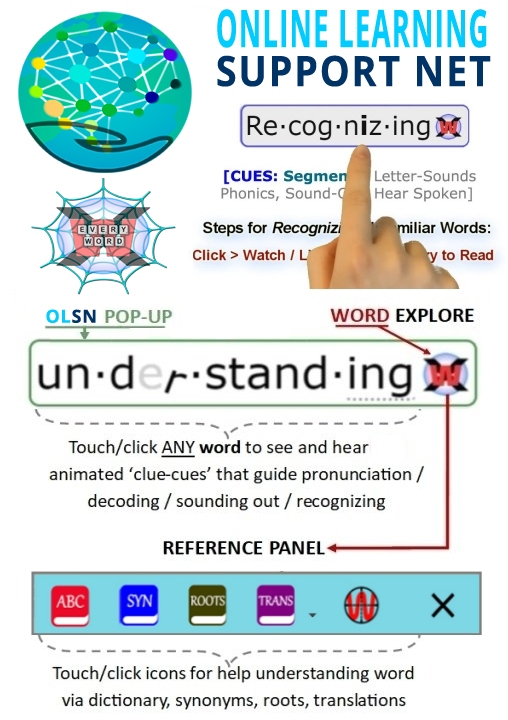Genetics
Note: Remember to click on any word on this page to experience the next evolutionary step in technology supported reading.
The Genetic - Environmental Spectrum
David Boulton: Let’s talk about how this relates to reading, which is our focus. Let’s talk about the difference between a genetically driven variation in this signal to noise distinction process and the quality of the sound scape in the environment the child is developing in.
Dr. Michael Merzenich: Right. Well, first of all, I want to say that every child that has a reading impairment, does not have an identical genetic fault.
The development of human ability represents a complex interplay between inherited resources and environmental influences. Our abilities absolutely spring out of the self-organization of our capacities as a product of our environment given our inherited resources. So both of them are absolutely crucial. You could say we have this broad category that we call normal development, which has a lot of slack, a lot of latitude in it. On the other hand we have the capacity to get the most out of a brain which means we can get more out of brains if the environment is enriched and positive and has greater possibilities expressed.
There’s been sort of a religious notion that we’re stuck with our inherited resources, and to some extent, of course we are. It represents a source of limits to everyone of us – every individual human being. But at the same time, we have a tremendous capacity to modulate the outcomes of this given, our inherited resources, as a function of our individual experiences.
One of the complications of that is there is a very poor understanding of what good is when we say what we need to do for a kid, for the kid to advance in the most positive way and have the most general positive benefit from it. So we’re very confused about what exactly it is that the brain needs to get the most out of it, to make it the best at communicating, and ultimately, become the best reader. But given that aside, absolutely environment makes an enormous difference.
Michael Merzenich, Chair of Otolaryngology at the Keck Center for Integrative Neurosciences at the University of California at San Francisco. He is a scientist and educator, and found of Scientific Learning Corporation and Posit Science Corporation. Source: COTC Interview – http://www.childrenofthecode.org/interviews/merzenich.htm#TheGenetic-EnvironmentalSpectrum
Genetics
Pat Lindamood: And so the thing that’s important to know is that the problem is a genetic difference that some of us don’t come wired with the same kind of connections for this specific function of phoneme awareness.
David Boulton: You said, “genetic difference”. It seems to me that some of the processing infrastructure that’s forming in children from infants on, relative to how well they can do this, is forming in response to the environment they’re in and how language is being used, how distinctly it’s being used, or complexly it’s being used, the speed at which it’s being used. Aren’t they growing into a learning environment that’s also affecting how well the formation of their ability to do this is developing?
Pat Lindamood: Yes, it can have some effect. But when you have within the same family some children who can respond to that environment without any difficulty and another child who doesn’t, why, then, now that we have fMRI measures and MSI measures, now what we used to try to analyze on the basis of performance of the student, or behavior, now we can actually use brain function measures that will show an area of the brain that is active when people are making these good judgments about the identity, number and order of sounds and words, and that area of the brain is not active when they’re unable to do that.
David Boulton: Right. But that’s still at a snapshot in time. I mean, unless we did that across the number of children from the time they were born until the time they were six or seven so we could see the effect of their environment on developing that — I mean, I hear what you’re saying about the different kids from the same family ending up with different capacities here, and that that certainly reveals a genetic propensity that’s at work, but that at some degree, it’s both.
Pat Lindamood: Yeah.
David Boulton: I mean I don’t know how we could say otherwise, right? We couldn’t say that it was just genetic.
Pat Lindamood: No, no.
David Boulton: Okay.
Pat Lindamood: No, because if it were just genetics, then you couldn’t do anything about it.
David Boulton: Yes.
Pat Lindamood: But it is — it’s genetically based. And then depending on what’s done, the situation can be changed or not changed.













